MercoPress. South Atlantic News Agency
Tag: Standard & Poor's
-
Tuesday, July 14th 2015 - 06:00 UTC
Brazil's economic team reaching out to credit rating agencies for a vote of confidence

Concerns that Brazil may lose its coveted investment grade credit rating are again on the rise among government officials and investors who worry that President Dilma Rousseff’s austerity push won’t fully offset plunging government revenues.
-
Thursday, October 9th 2014 - 07:17 UTC
“Easy money” will be around for some time still, say Fed's minutes
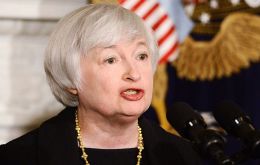
US markets rose sharply after minutes from the September meeting of the Federal Reserve were released. The transcript indicated that US central bankers were wary of raising rates too soon. Officials were worried markets were too focused on a rate rise happening during a specific period of time.
-
Friday, August 1st 2014 - 08:24 UTC
Argentine shares and bonds plunge, while US dollar climbs as operators seek refuge

Argentine shares and bonds plunged on Thursday as investors reacted to the failed negotiations between Argentina and the holdout hedge funds in New York. At the Buenos Aires City stock market the Merval index closed down by 8.4% to 8,187.99 points, far from yesterday’s record 6.9% climb.
-
Thursday, July 31st 2014 - 06:55 UTC
Argentine private banks discussing bond purchase from holdouts

The meeting between Argentine private bank representatives and the 'holdouts' over the debt held by the hedge funds has been adjourned and will be resumed on Thursday, according to Buenos Aires financial daily Ambito.com.
-
Friday, July 11th 2014 - 06:36 UTC
Brazil's next government will have to implement a tough fiscal tightening, says Fitch
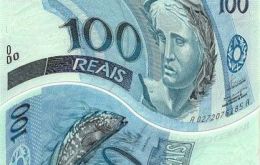
Fitch Ratings on Thursday reaffirmed Brazil's “BBB” credit rating with a stable outlook, but added it expects the next government to control spending in order to avoid additional fiscal deterioration that could trigger a downgrade.
-
Wednesday, June 18th 2014 - 08:09 UTC
S&P and Argentina in six months: “default or distressed debt exchange”
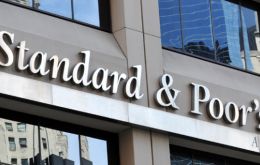
Standard & Poor's cut its rating of Argentina's long-term foreign currency debt rating to CCC- from CCC+ with a “negative” outlook. A CCC rating is defined as “currently vulnerable and dependent on favorable business, financial and economic conditions to meet financial commitments,” according to S&P.
-
Wednesday, June 4th 2014 - 09:03 UTC
Timid S&P ignores Moody's and leaves Uruguay' risk rating unchanged
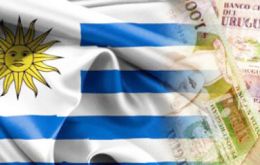
Standard & Poor's (S&P) decided on Tuesday to maintain Uruguay's sovereign debt risk rating unchanged at the lowest investment grade BBB-, because although it has solid growth prospects, predictable policies and a favorable debt profile, the country still has limited fiscal and monetary flexibility and lives in a neighborhood experimenting 'economic stress'.
-
Wednesday, March 26th 2014 - 07:44 UTC
Brazil hits back at S&P; says economy is well positioned to new challenges in the global scenario
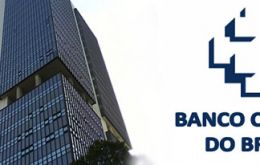
Brazil's central bank on Tuesday said it will continue to respond to challenges in the international scenario after Standard & Poor's decision to downgrade the country's credit ratings. This includes a rigorous set of macroeconomic policies, a flexible exchange rate regime and the use of liquidity buffers “to smooth out moves in asset prices” the bank said in a statement.
-
Tuesday, March 25th 2014 - 08:51 UTC
S&P downgrades Brazil’s sovereign debt rating to BBB minus

Standard & Poor's cut Brazil's sovereign debt rating closer to speculative territory in a blow to President Dilma Rousseff administration. Brazil had its long-term debt rating downgraded to BBB minus, the agency's lowest investment-grade rating. S&P changed its outlook to stable from negative, meaning further downgrades are unlikely for now, which will come as a relief for both politicians in Brasilia and financial markets.The move was widely expected but the timing surprised some investors.
-
Thursday, December 19th 2013 - 06:01 UTC
Fed announces gradual conditioned tapering of stimuli from next January
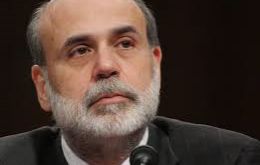
The U.S. Federal Reserve will start scaling back its monthly bond-buying program as early as next month, but the reduction will be gradual. The Federal Reserve has been buying 85 billion dollars a month in government bonds in an effort to keep interest rates low and boost economic growth.
